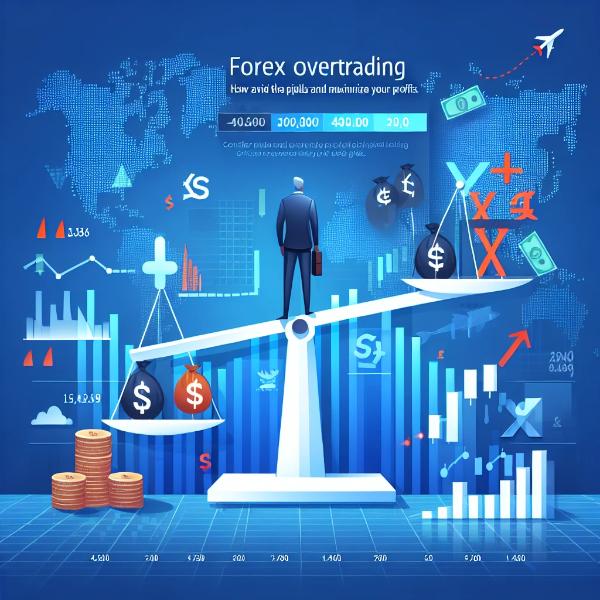Forex vs Stocks: Which is the Better Investment Option

Are you looking for the best investment option? Look no further! In the world of finance, two major players stand out: Forex and stocks. Both offer unique opportunities for investors to grow their wealth, but which one is the better choice?
Forex, also known as foreign exchange or currency trading, is the largest and most liquid market in the world. It involves buying and selling currencies with the aim of making a profit from the fluctuations in exchange rates. With Forex, you can trade 24 hours a day, 5 days a week, giving you the flexibility to take advantage of global economic trends.
Stocks, on the other hand, represent ownership in a company. When you buy stocks, you become a shareholder and have the potential to earn profits through dividends and capital appreciation. The stock market offers a wide range of investment opportunities, from well-established companies to emerging startups.
So, which one should you choose? It ultimately depends on your investment goals, risk tolerance, and trading style. Forex offers high liquidity and the potential for quick profits, but it also comes with higher volatility and risks. Stocks, on the other hand, offer long-term growth potential and the opportunity to invest in companies you believe in.
Whether you choose Forex or stocks, it’s important to do your research, develop a solid investment strategy, and stay informed about market trends. Remember, investing always carries risks, so it’s crucial to diversify your portfolio and seek professional advice if needed.
So, what are you waiting for? Start exploring the world of Forex and stocks today and make the better investment option for your financial future!
Pros and Cons of Investing in Forex
Investing in the foreign exchange market, also known as Forex, can offer both advantages and disadvantages. It is important to consider these pros and cons before deciding to invest in this market.
Pros:
1. High liquidity: The Forex market is the largest and most liquid financial market in the world. This means that there is always a buyer and a seller available, making it easier to enter and exit trades.
2. 24-hour market: Unlike the stock market, Forex operates 24 hours a day, five days a week. This allows investors to trade at any time, regardless of their location or time zone.
3. Potential for high returns: Due to the high volatility in the Forex market, there is a potential for significant profits. Traders can take advantage of price fluctuations and leverage to amplify their gains.
4. Diversification: Investing in Forex can be a way to diversify your investment portfolio. It offers an opportunity to trade different currency pairs and take advantage of global economic trends.
Cons:
1. High risk: The Forex market is highly volatile and can be risky for inexperienced traders. The potential for high returns also comes with the risk of significant losses.
2. Complex market: Forex trading requires a deep understanding of economic factors, technical analysis, and market trends. It can be challenging for beginners to grasp all the complexities of the market.
3. No centralized exchange: Unlike the stock market, Forex trading is decentralized, with no central exchange. This can lead to issues such as price manipulation and lack of transparency.
4. Leverage risks: Forex trading often involves the use of leverage, which can amplify both profits and losses. It is important to use leverage responsibly and be aware of the potential risks involved.
Overall, investing in Forex can be a lucrative opportunity for experienced traders who are willing to take on the risks. However, it is important to approach the market with caution and educate yourself to make informed investment decisions.
Advantages of Forex Trading
Forex trading, also known as foreign exchange trading, offers several advantages over traditional stock trading. Here are some of the key advantages of forex trading:
| 1. High Liquidity: | Forex market is the largest financial market in the world, with a daily trading volume of over $5 trillion. This high liquidity ensures that traders can easily enter and exit positions at any time, without worrying about market manipulation or price slippage. |
| 2. 24/5 Market: | The forex market operates 24 hours a day, 5 days a week, allowing traders to participate in trading activities at any time. This flexibility is particularly advantageous for individuals who have other commitments during regular trading hours. |
| 3. Global Market: | Forex trading is a global market, which means that traders can trade currencies from all over the world. This provides opportunities for diversification and allows traders to take advantage of different economic conditions and geopolitical events. |
| 4. Leverage: | Forex trading offers high leverage, which allows traders to control larger positions with a smaller amount of capital. This can amplify potential profits, but it’s important to note that it also increases the risk of losses. |
| 5. Lower Transaction Costs: | Compared to stock trading, forex trading generally has lower transaction costs. There are no exchange fees, clearing fees, or government fees involved in forex trading. The main cost for forex traders is the spread, which is the difference between the buying and selling price of a currency pair. |
| 6. No Market Manipulation: | Unlike the stock market, which can be influenced by large institutional investors or market manipulators, the forex market is highly decentralized. This reduces the risk of market manipulation and ensures a fair and transparent trading environment. |
These advantages make forex trading an attractive option for both experienced traders and beginners looking to enter the financial markets. However, it’s important to remember that forex trading involves significant risks and should be approached with caution. It’s recommended to gain a thorough understanding of the market and develop a sound trading strategy before getting started.
Disadvantages of Forex Trading
While forex trading offers many advantages, it is important to also consider the potential disadvantages that come with it. Here are some of the key disadvantages of forex trading:
1. High Volatility: The forex market is known for its high volatility, which can lead to significant price fluctuations in a short period of time. This can make it difficult to predict market movements and increase the risk of losses.
2. Leverage Risks: Forex trading often involves the use of leverage, which allows traders to control larger positions with a smaller amount of capital. While leverage can amplify profits, it can also magnify losses, leading to substantial financial risks.
3. Market Manipulation: The decentralized nature of the forex market makes it susceptible to market manipulation. Large financial institutions and central banks can influence currency prices through their trading activities, which can make it challenging for individual traders to compete.
4. Lack of Transparency: Unlike stock markets, the forex market operates over-the-counter (OTC), which means that trades are conducted directly between parties without a centralized exchange. This lack of transparency can make it difficult to obtain accurate and up-to-date information about currency prices.
5. Emotional Trading: Forex trading can be highly emotional, as traders may experience fear, greed, and other emotions that can cloud their judgment. Emotional trading can lead to impulsive decision-making and result in poor trading outcomes.
6. Time Commitment: Successful forex trading requires a significant time commitment, as traders need to continuously monitor the market and analyze price movements. This can be challenging for individuals with busy schedules or limited availability.
7. Regulatory Risks: The forex market is subject to regulatory risks, as governments and regulatory bodies can introduce new rules and regulations that can impact trading conditions. Traders need to stay informed about regulatory changes and adapt their strategies accordingly.
While forex trading can be highly profitable, it is important to be aware of these potential disadvantages and manage them effectively to minimize risks and maximize returns.
Pros and Cons of Investing in Stocks
Investing in stocks can be a lucrative opportunity for individuals looking to grow their wealth. However, like any investment, there are both pros and cons to consider before diving in.
| Pros | Cons |
|---|---|
| 1. Potential for High Returns | 1. Volatility and Risk |
| 2. Diversification Options | 2. Market Fluctuations |
| 3. Ownership Stake | 3. Time and Effort |
| 4. Dividend Income | 4. Lack of Control |
| 5. Liquidity | 5. Emotional Rollercoaster |
1. Potential for High Returns: One of the biggest advantages of investing in stocks is the potential for high returns. Stocks have historically outperformed other asset classes over the long term, allowing investors to grow their wealth significantly.
2. Diversification Options: Investing in stocks provides individuals with a wide range of diversification options. By investing in different companies across various industries, investors can spread their risk and potentially reduce the impact of any single stock’s poor performance on their overall portfolio.
3. Ownership Stake: When you invest in stocks, you become a partial owner of the company. This ownership stake gives you certain rights, such as voting on company decisions and receiving dividends if the company distributes them.
4. Dividend Income: Some stocks pay dividends, which are regular cash payments made to shareholders. These dividends can provide a steady stream of income for investors, especially those looking for passive income options.
5. Liquidity: Stocks are highly liquid investments, meaning they can be bought and sold quickly. This liquidity allows investors to easily access their funds when needed, providing flexibility and the ability to react to changing market conditions.
1. Volatility and Risk: Investing in stocks comes with inherent volatility and risk. Stock prices can fluctuate significantly in the short term, potentially leading to losses if the market goes against your investments.
2. Market Fluctuations: The stock market is influenced by various factors, including economic conditions, geopolitical events, and investor sentiment. These market fluctuations can impact stock prices, making it challenging to predict and time investments effectively.
3. Time and Effort: Successful stock investing requires time and effort. Investors need to research and analyze companies, stay updated on market trends, and regularly monitor their investments. This active involvement may not be suitable for everyone, especially those with limited time or expertise.
4. Lack of Control: As a shareholder, you have limited control over the management and decision-making of the company. The company’s performance and future direction are ultimately determined by its management team, which may not always align with your expectations or interests.
5. Emotional Rollercoaster: Investing in stocks can be an emotional rollercoaster. Stock prices can be influenced by market sentiment and investor behavior, leading to periods of euphoria and panic. Managing emotions and making rational decisions during market downturns can be challenging for some investors.
Overall, investing in stocks offers the potential for high returns and ownership in companies. However, it also comes with volatility, market fluctuations, and the need for active involvement. It’s important to carefully consider these pros and cons before making any investment decisions.
Advantages of Stock Investing
Stock investing offers several advantages that make it an attractive option for investors looking to grow their wealth:
1. Potential for High Returns: Stocks have historically provided higher returns compared to other investment options such as bonds or savings accounts. By investing in stocks, you have the potential to earn significant profits over the long term.
2. Diversification: Investing in stocks allows you to diversify your portfolio and spread your risk. By owning shares in different companies across various industries, you can minimize the impact of any single company’s performance on your overall investment.
3. Liquidity: Stocks are highly liquid investments, meaning you can easily buy or sell them on the stock market. This liquidity provides flexibility and allows you to quickly react to market conditions or take advantage of investment opportunities.
4. Ownership and Voting Rights: When you invest in stocks, you become a partial owner of the company. This ownership entitles you to voting rights, allowing you to have a say in important company decisions, such as electing board members or approving major changes.
5. Dividend Income: Many companies distribute a portion of their profits to shareholders in the form of dividends. By investing in dividend-paying stocks, you can earn a regular income stream in addition to potential capital appreciation.
6. Access to Professional Management: Investing in stocks provides you with access to professional fund managers who analyze and make investment decisions on your behalf. This can be particularly beneficial for novice investors or those who prefer a hands-off approach to investing.
7. Transparency and Information Availability: The stock market is highly regulated, and companies are required to disclose their financial information to the public. This transparency allows investors to make informed decisions based on the company’s financial health and performance.
8. Potential for Long-Term Growth: Stocks have the potential to generate long-term growth, especially if you invest in companies with strong fundamentals and growth prospects. By holding stocks for an extended period, you can benefit from compounding returns and potentially build significant wealth over time.
9. Flexibility and Control: Stock investing offers flexibility and control over your investment decisions. You can choose which stocks to invest in, when to buy or sell, and how much to allocate to each investment. This level of control allows you to tailor your investment strategy to your specific goals and risk tolerance.
10. Inflation Hedge: Stocks have historically provided a hedge against inflation. As the prices of goods and services rise over time, companies can increase their prices and generate higher profits, which can translate into higher stock prices and returns for investors.
Overall, stock investing can be a rewarding and potentially lucrative investment option for those willing to do their research, stay informed, and take a long-term approach to investing.
Disadvantages of Stock Investing
While stock investing can be a lucrative investment option, it also comes with its fair share of disadvantages. It is important for investors to be aware of these drawbacks before diving into the stock market.
1. Volatility: Stocks are known for their volatility, which means that their prices can fluctuate significantly in a short period of time. This can lead to both high returns and substantial losses. Investors need to be prepared for the ups and downs of the market and have a long-term investment strategy in place.
2. Market Uncertainty: The stock market is influenced by a wide range of factors, including economic conditions, political events, and investor sentiment. These factors can create a high level of uncertainty, making it difficult to predict stock prices accurately. Investors need to stay informed and be prepared for unexpected market movements.
3. Individual Company Risk: When investing in stocks, investors are exposed to the risk of individual companies performing poorly. Even if the overall market is doing well, a single company’s poor performance can have a significant impact on the investor’s portfolio. Diversification can help mitigate this risk, but it does not eliminate it entirely.
4. Emotional Decision-Making: Investing in stocks can be an emotional rollercoaster. When stock prices are soaring, investors may feel euphoric and be tempted to buy more. On the other hand, when prices are plummeting, fear and panic can set in, leading to impulsive selling. Emotional decision-making can lead to poor investment choices and potential losses.
5. Time and Effort: Successful stock investing requires time and effort. Investors need to research and analyze companies, monitor market trends, and stay up to date with news and events that can impact stock prices. This can be time-consuming and may not be suitable for individuals who do not have the resources or desire to dedicate themselves to stock investing.
Overall, stock investing offers the potential for significant returns, but it also carries certain risks and disadvantages. It is important for investors to carefully consider these factors and seek professional advice if needed before making investment decisions.
Factors to Consider When Choosing Between Forex and Stocks
When deciding between investing in Forex or stocks, there are several factors that you should consider. Each option has its own advantages and disadvantages, and understanding these factors can help you make an informed decision.
| Factor | Forex | Stocks |
|---|---|---|
| Liquidity | High liquidity, as the Forex market is the largest financial market in the world. | Liquidity can vary depending on the stock, but overall, it is lower compared to Forex. |
| Market Hours | Forex operates 24 hours a day, 5 days a week, allowing for flexible trading. | Stocks have specific trading hours, usually during the business hours of the stock exchange. |
| Volatility | Forex markets can be highly volatile, providing opportunities for profit but also increasing the risk. | Stocks can also be volatile, but the volatility is often influenced by company-specific factors. |
| Investment Size | Forex allows for trading with smaller investment sizes due to leverage, making it accessible for retail traders. | Stocks typically require larger investment sizes, which may limit access for some individual investors. |
| Market Influence | The Forex market is influenced by various factors such as economic indicators, geopolitical events, and central bank policies. | Stocks can be influenced by company-specific news, industry trends, and overall market sentiment. |
| Risk Management | Forex trading requires careful risk management due to the high leverage and potential for rapid price movements. | Stocks also require risk management, but the risk is often more predictable and manageable. |
Ultimately, the choice between Forex and stocks depends on your individual preferences, risk tolerance, and investment goals. It is important to thoroughly research and understand both options before making a decision. Consider consulting with a financial advisor or broker who can provide guidance based on your specific circumstances.
Risk and Volatility
When it comes to investing, risk and volatility are two important factors to consider. Both the forex and stock markets carry their own level of risk and volatility, but they differ in several ways.
Forex:
The forex market is known for its high volatility. Currency exchange rates can fluctuate rapidly, sometimes within seconds or minutes. This volatility can provide opportunities for traders to make quick profits, but it also comes with a higher level of risk. The forex market is influenced by various factors such as economic indicators, geopolitical events, and central bank policies, which can lead to significant price movements.
Trading forex requires a deep understanding of the market and its dynamics. Traders need to constantly monitor news and events that can impact currency values. The leverage offered in forex trading can amplify both profits and losses, making it a high-risk investment option.
Stocks:
Stock markets also carry their own level of risk and volatility. However, compared to the forex market, stocks are generally considered to be less volatile. Stock prices can still experience significant fluctuations, especially during earnings releases or major company announcements. However, these price movements are often driven by company-specific factors rather than external events.
Investing in stocks requires a thorough analysis of individual companies, their financials, and their industry trends. Investors need to consider factors such as revenue growth, profitability, and competitive advantages. While stocks can provide long-term capital appreciation, they also come with the risk of individual company performance and market downturns.
In conclusion, both forex and stocks carry their own level of risk and volatility. The forex market is known for its high volatility and rapid price movements, while stocks are generally considered to be less volatile. Traders and investors need to carefully assess their risk tolerance and investment goals before deciding which option is better suited for them.
Liquidity and Accessibility
When it comes to liquidity, both forex and stocks offer different advantages. Forex, also known as foreign exchange, is the largest financial market in the world, with a daily trading volume of trillions of dollars. This high liquidity means that traders can easily buy and sell currencies at any time, ensuring that there is always a market available.
On the other hand, stocks are traded on stock exchanges, and their liquidity can vary depending on the company and the volume of shares being traded. While some stocks have high liquidity and can be easily bought or sold, others may have lower liquidity, making it more difficult to execute trades quickly.
In terms of accessibility, forex trading is open 24 hours a day, five days a week, allowing traders to participate in the market at any time. This accessibility is particularly advantageous for those who have other commitments during regular trading hours or for traders in different time zones.
Stock trading, on the other hand, is typically limited to the trading hours of the stock exchange in which the stocks are listed. This means that traders need to be available during these hours to execute their trades.
Overall, both forex and stocks offer liquidity and accessibility, but in different ways. Forex provides high liquidity and round-the-clock accessibility, while stocks may have varying levels of liquidity and are subject to the trading hours of the stock exchange. Traders should consider their individual preferences and trading strategies when deciding which investment option is better suited to their needs.
Question-Answer:
What is the difference between forex and stocks?
Forex, or foreign exchange, is the trading of currencies, while stocks refer to the buying and selling of shares in companies. Forex is a decentralized market, while stocks are traded on exchanges.
Which market is more liquid, forex or stocks?
The forex market is considered to be more liquid than the stock market. This is because the forex market has a higher trading volume and is open 24 hours a day, five days a week.
Is forex trading riskier than investing in stocks?
Both forex trading and investing in stocks carry their own risks. Forex trading can be more volatile and unpredictable, while stock investing is subject to market fluctuations and company-specific risks.
Can I trade forex and stocks at the same time?
Yes, it is possible to trade both forex and stocks simultaneously. Many traders and investors diversify their portfolios by participating in both markets.
Which market offers higher potential returns, forex or stocks?
Both forex and stocks have the potential for high returns, but it ultimately depends on various factors such as market conditions, individual trading strategies, and risk tolerance. Some traders may find more opportunities in forex, while others may prefer stocks.
What is the difference between forex and stocks?
Forex, or foreign exchange, is the market where currencies are traded. Stocks, on the other hand, represent ownership in a company. The main difference is that forex trading involves buying and selling currencies, while stock trading involves buying and selling shares of a company.
Which market is more liquid, forex or stocks?
The forex market is generally considered to be more liquid than the stock market. This is because the forex market is the largest financial market in the world, with trillions of dollars traded daily. In contrast, the stock market is smaller and can be more affected by individual stock movements.
Which market offers more leverage, forex or stocks?
The forex market typically offers higher leverage compared to the stock market. Leverage allows traders to control larger positions with a smaller amount of capital. However, it’s important to note that leverage can amplify both profits and losses, so it should be used with caution.
Which market is more volatile, forex or stocks?
Both forex and stocks can be volatile, but the forex market is generally considered to be more volatile. This is because currency exchange rates can be influenced by a wide range of factors, such as economic data, geopolitical events, and central bank decisions. Stock prices can also be volatile, but they are typically influenced by company-specific news and events.
Which market offers more trading opportunities, forex or stocks?
Both forex and stocks offer a wide range of trading opportunities. However, the forex market is open 24 hours a day, 5 days a week, which means there are more opportunities to trade. In contrast, the stock market has specific trading hours and is closed on weekends and holidays.
What is the difference between forex and stocks?
Forex, or foreign exchange, is the market where currencies are traded. Stocks, on the other hand, represent ownership in a company. The main difference is that forex trading involves the buying and selling of currencies, while stock trading involves buying and selling shares of a company.
Which market offers higher potential returns, forex or stocks?
Both forex and stocks have the potential for high returns, but it depends on various factors such as market conditions, trading strategies, and individual skills. Forex trading offers the potential for higher leverage, which can amplify profits, but it also increases the risk. Stock trading can also yield significant returns, especially if you invest in high-growth companies.
Is forex trading more risky than stock trading?
Forex trading and stock trading both involve risks, but the nature of the risks differs. Forex trading is known for its high volatility and leverage, which can lead to substantial gains or losses in a short period. Stock trading carries its own risks, such as company-specific risks or market-wide risks. It is important to carefully assess the risks and have a solid risk management strategy in place for both markets.
Which market is more suitable for beginners, forex or stocks?
Both forex and stocks can be suitable for beginners, but it depends on individual preferences and risk tolerance. Forex trading requires a good understanding of currency markets and technical analysis, while stock trading requires knowledge of specific companies and their financials. Some beginners may find forex trading more accessible due to its 24-hour market and lower initial capital requirements, while others may prefer starting with stocks.
Can I invest in both forex and stocks?
Yes, it is possible to invest in both forex and stocks. Many traders and investors diversify their portfolios by including both asset classes. This can help spread the risk and take advantage of different market opportunities. However, it is important to have a good understanding of both markets and develop separate strategies for forex trading and stock investing.






